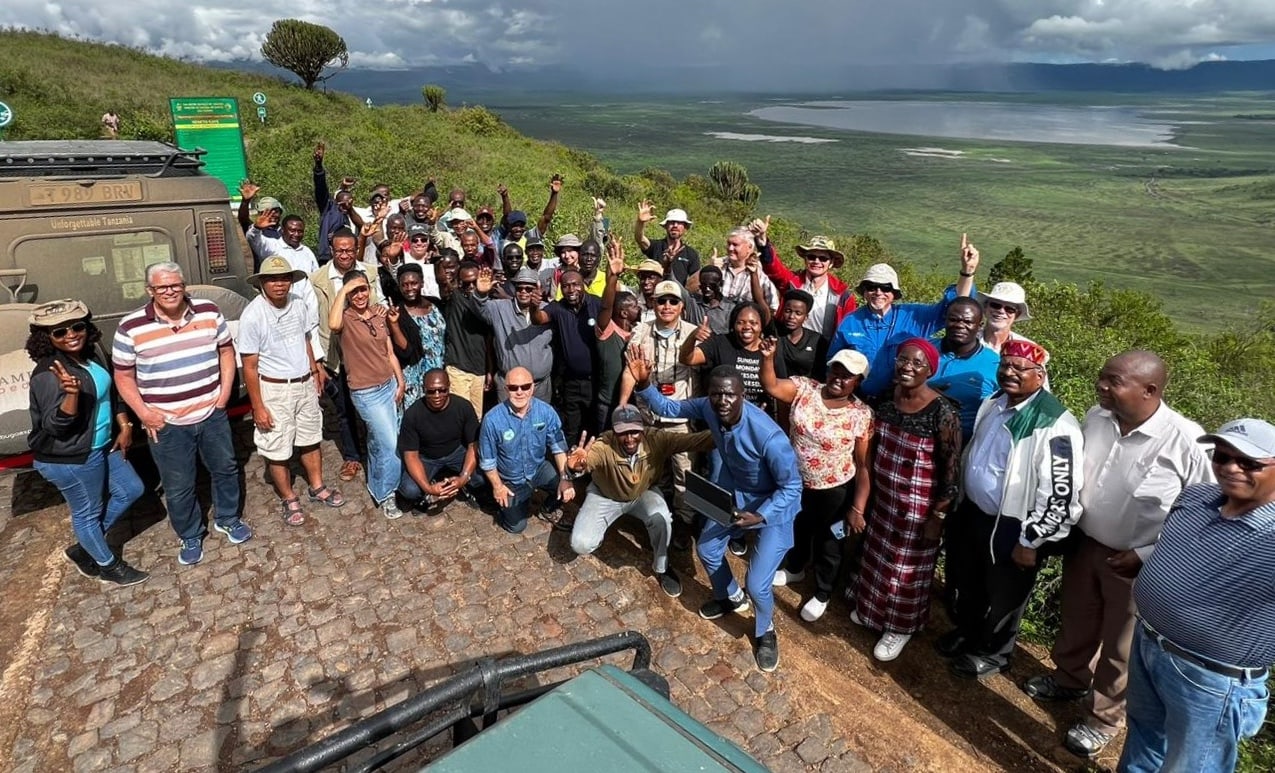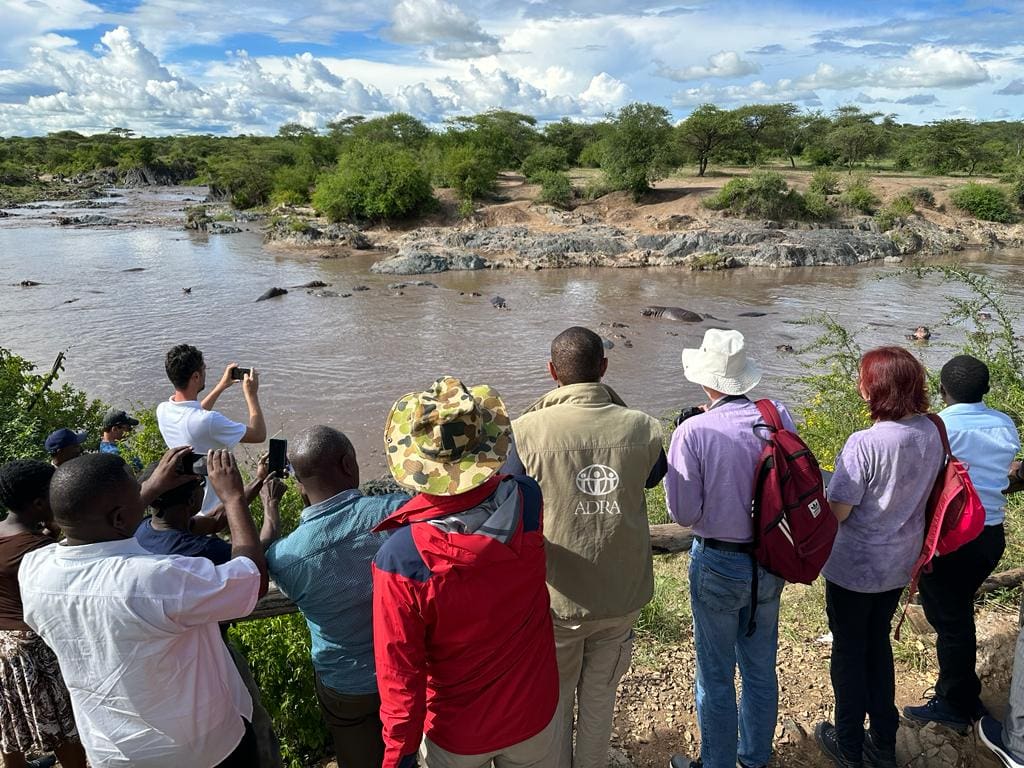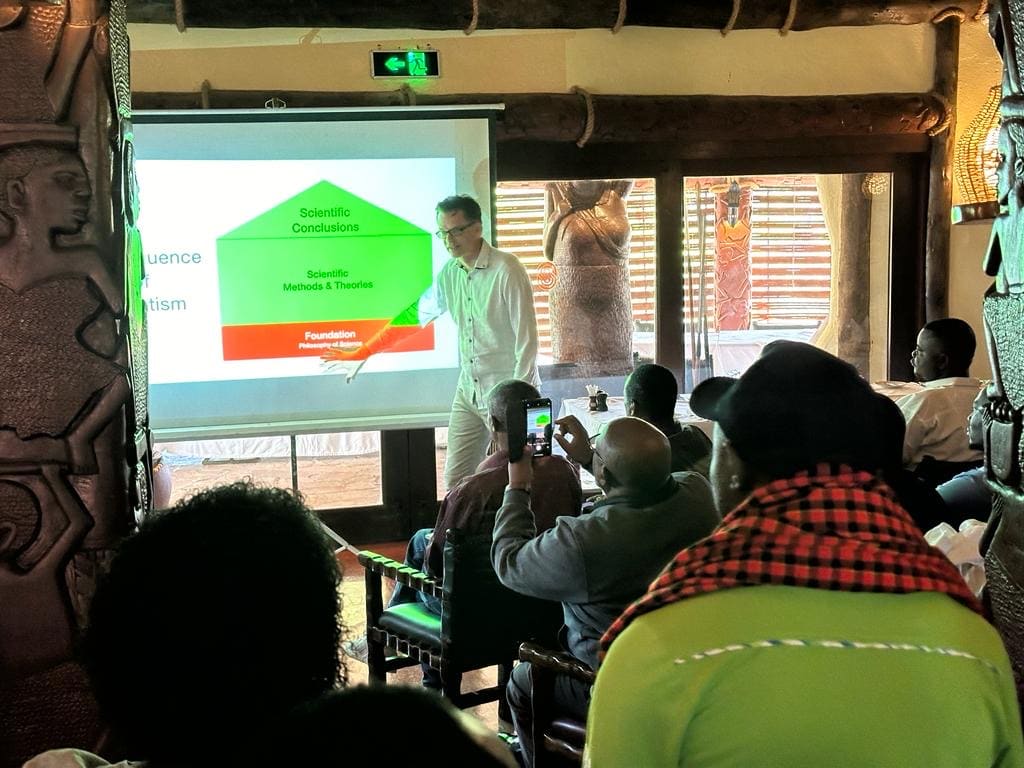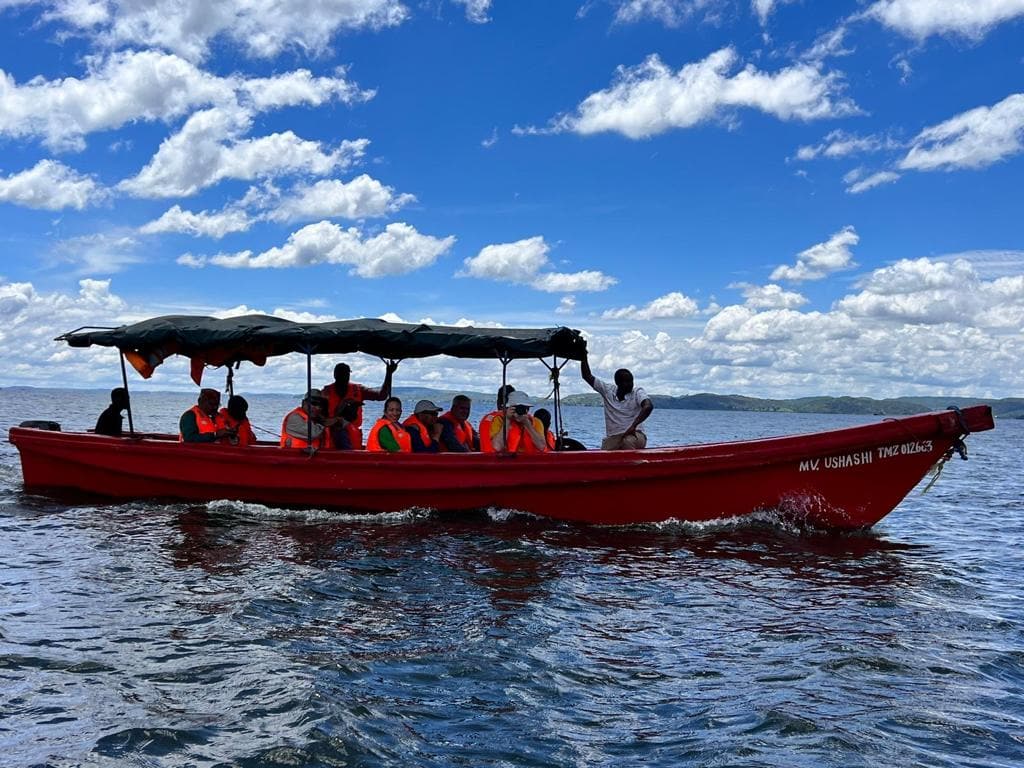
The Geoscience Research Institute (GRI), a scientific research facility of the Seventh-day Adventist Church, recently hosted its first field conference on the African continent in Tanzania. Field conferences go beyond traditional meetings and lectures to immerse participants in hands-on experiences, directly exposing them to natural features relevant to a biblical understanding of origins.
While numerous field conferences have been conducted in the multidecadal history of GRI in locations throughout North America, South America, Europe, and Australasia, this groundbreaking event in Africa marked a significant milestone in the Institute’s engagement and service to the global church.
GRI’s decision to partner with the East-Central Africa Division (ECD) of the Adventist Church for the conference underscored the division’s status as a powerhouse in Adventist education. With an estimated 750,000 students in more than 3,400 institutions, ECD boasts the largest Seventh-day Adventist educational footprint globally. To optimize impact, 60 individuals were strategically selected for participation in the conference, representing key actors in education, including secondary school science teachers, science professors from tertiary institutions, union directors of education, university administrators, and public campus ministries student leaders.
Tanzania was deliberately chosen as the background of this conference because it provides a canvas to explore major areas crucial to the application of a biblical framework in understanding origins models, organizers said. For example, Lake Victoria and Archean rocks in its vicinity offered a study focus on planetary formation and the age of the earth in relation to creation week. Wildlife in the Serengeti and Ngorongoro national parks informed a discussion of ecology, animal interactions, and the consequences of the fall on biological systems. Olduvai Gorge provided a site for the evaluation of models of human origins and the fossil record of humans. And the East African Rift helped in the exploration of plate tectonics, flood models, and the earth’s dynamic history.



“The field conference has started a ripple effect,” ECD education director Andrew Mutero said. “This will be felt across the 11 countries of the East-Central Africa Division. We are now trained, informed, and very motivated. We are going to hit the ground running.”
Complementing the field experiences were lectures by an international panel of GRI scientists and representatives from the world divisions of the Adventist Church. Topics ranged from the fine-tuning of the cosmos to navigating the delicate balance between scientism and fundamentalism. Two workshop sessions engaged three distinct groups — leaders, students, and teachers — resulting in each group establishing resolutions and actionable goals for the coming year.
“The attendees were a great group to work with,” Ben Clausen, senior scientist for GRI and field conference director, said. “The objectives were to learn new geology and biology, understand time issues in relation to earth history models, foster a positive attitude relating science and faith, and increase trust in God and His Word.”
The conference’s success has paved the way for future collaboration between GRI and ECD. Plans include establishing a GRI branch office; developing certificate training for teachers at the Adventist University of Africa in the intersection of faith and science; and offering a series of training events in the division scheduled for the upcoming year.
“I thank God for the conference,” said Alfaxad Mussa Chacha, biology and chemistry teacher at Ikizu High School in Rwanda. “Together, we learned more about creation, and as a biologist, I will use the opportunity of teaching genetics to show how we are fearfully and wonderfully made.”
As the echoes of the GRI field conference resonate through the ECD, with the participants’ return to their respective countries, new paths for understanding the intersection of faith and science illuminate the church’s witness about our loving Creator, organizers said. “The event has empowered a new generation of educators and leaders to carry the torch of knowledge into their respective communities,” they said.